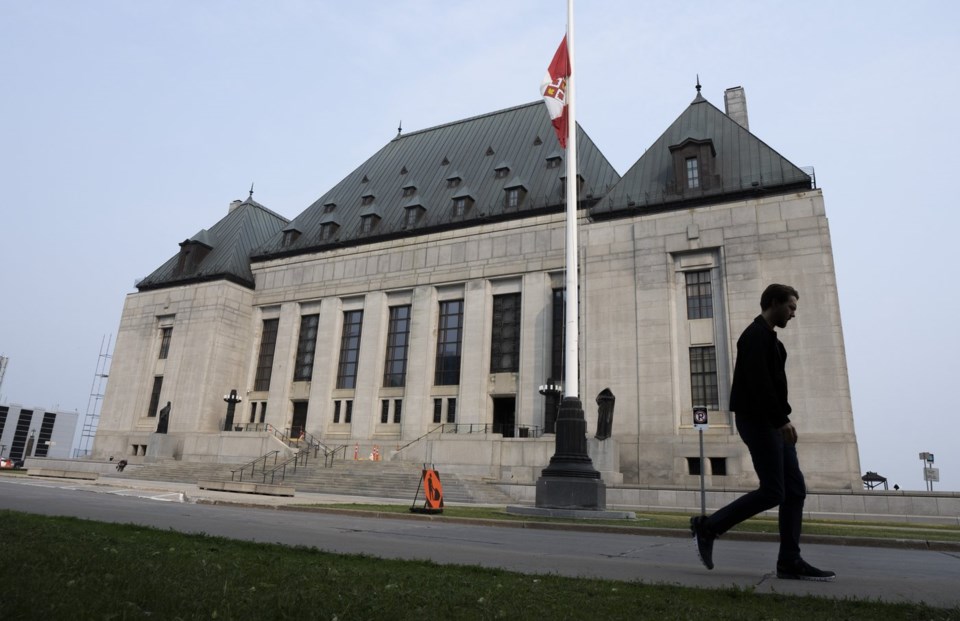OTTAWA — Canada's top court has affirmed the constitutionality of a law allowing British Columbia to pursue a class-action lawsuit against opioid providers on behalf of other provinces, the territories and the federal government.
The Supreme Court of Canada's 6-1 decision Friday is another step toward a potential cross-country action by governments that paid to treat patients who took the addictive drugs.
Section 11 of B.C.'s Opioid Damages and Health Care Costs Recovery Act allows the province to bring an action against opioid manufacturers and distributors on behalf of multiple governments, but also allows a government to opt out of the proceeding.
Several companies argued Section 11 violates the Constitution by overstepping provincial authority.
B.C. courts declared the law valid, prompting the companies to take their case to the Supreme Court.
A majority of the top court found that the B.C. law respects the legislative sovereignty of other Canadian governments.
It noted that nearly every province and territory in Canada and the federal government intend to participate in the proposed class action, adding that a court should exercise considerable caution before it finds that this co-operation is unconstitutional.
Section 11 is an example of the important role that national class actions play, providing a mechanism to help multiple governments work toward the same goal, the court said.
In an increasingly complex modern world, where governments assume greater regulatory roles in multi-faceted areas, there is a greater need for collaboration between governments and between courts that cross those borders, Justice Andromache Karakatsanis wrote on behalf of the majority.
"The opioid epidemic spanning our country is a stark example of a crisis which attracts this co-operation and comity. National in scope, it highlights the role a national class action can play in achieving efficiency, consistency and access to justice for all those who have experienced harm, regardless of geographic boundaries."
B.C. Premier David Eby said in a social media post Friday the opioid crisis has taken thousands of lives and devastated families across the province and the country.
"Today's Supreme Court ruling allows us to hold opioid manufacturers accountable on behalf of all Canadians, for perpetuating this crisis.We will continue this fight."
The case stretches back to 2018 when British Columbia began an action in provincial court alleging manufacturers, marketers and distributors of opioid products contributed to the national epidemic by falsely marketing their products as being less addictive than other pain remedies.
B.C. sought certification of the action as a class proceeding with itself as the representative plaintiff and a class consisting of all federal, provincial and territorial governments and agencies that paid health-care, pharmaceutical and treatment costs related to opioids, Karakatsanis noted.
A few months later, B.C. ushered in the Opioid Damages and Health Care Costs Recovery Act, creating a direct, statutory cause of action.
Karakatsanis pointed out that this included new evidentiary rules and other procedural mechanisms that allow statistical information as admissible evidence to prove causation, relieve the government from proving the cause of any particular individual's opioid-related injuries, and require the court to presume that those individuals would not have used opioids without the defendants' actions.
Section 11 of the law authorizes B.C., in its existing proceeding, to bring an action on behalf of a class consisting of other provincial, territorial and federal governments in Canada and their health-care agencies — as B.C. had already done — unless those governments opt out of the class.
The province amended its notice of civil claim to incorporate the provision into its pleadings.
This report by The Canadian Press was first published Nov. 29, 2024.
— With files from Darryl Greer in Vancouver



